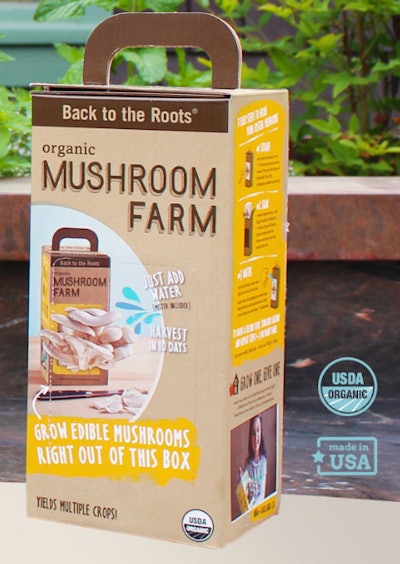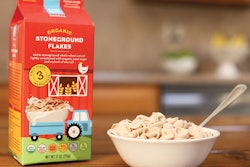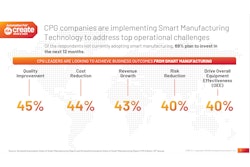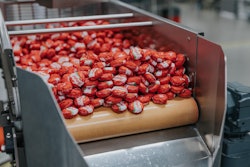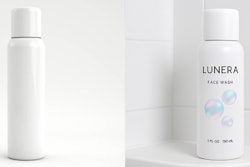“That’s the most disgusting thing I’ve ever seen,” the Whole Foods buyer told Nikhil Arora, who had just opened a basketball-sized bag of fungus — the crown jewel of a new home mushroom-growing kit — in the buyer's office. The inventor and budding brand innovator remained “super confident” that his mushrooms were destined to be a “next iPhone,” says the now-successful brand owner.
In 2009, he and partner Alejandro Velez co-founded their brand, Back to the Roots, following their experience as seniors at the University of California, Berkeley, where their business ethics professor’s idea of growing gourmet mushrooms from recycled coffee grounds sounded like “the coolest thing,” according to Arora. From their first efforts and early failures — like that first call on Whole Foods — the two, with design and production from a contract packaging partner, have gotten their products on shelves at that chain and others, including Kroger, Costco, Target and Home Depot.
Today, a much-improved organic Mushroom Farm kit has an innovative pop-out panel through which the mushrooms grow (pictured). This and a second product — Aqua Farm, a “self-cleaning fish tank that grows food” and generates its own fertilizer — have gained kudos from U.S. President Obama and a place for the co-founders on “top” lists including BusinessWeek’s Top 25 Entrepreneurs under 25, Inc.’s 30 Under 30, Forbes’ 30 Under 30 and CNN’s 10 Next Entrepreneurs.
A "shared vision," as well as clear goals and the hands-on expertise of contract packagers is critical to startup brands lacking manufacturing and packaging resources and know-how. “We wanted the kind of partners who could push us to be better than we actually are,” he added, so the brand could add value rather than going to market as a low-cost commodity, which is the last thing a mushroom kit or fish tank-garden can be called.
Success, of course, comes with its own challenges both in-house and externally. For instance, the Aqua Farm, was already selling in PetCo, Nordstrom and Home Depot when "in the last few months" Arora says Target, Kroger and Costco came on-board. The "fast growth and last-minute orders" caused some "butting heads" with the co-packer due to capacity constraints and the difficulty of adding shifts at the last minute. He admits forecasting “is something we can do better as a company,” and stresses the need to for good communication between partners to minimize if not prevent schedule upsets.
Additional collaborators at Pack Expo
Arora’s telling of the company’s rise entertained and inspired attendees of a panel presentation on supply chain collaboration at Pack Expo 2014 in Chicago. The panel was led by Chris Nutley, president of of contract bottler MSW Packaging Services [www.MSWPackaging.com] and of the Contract Packaging Association. Additional panelists spoke supply chain collaboration and co-pack business trends.
Rick Gessler, sales manager at Delkor Systems, supplier of end-of-line packaging and loading equipment, explained how his firm collaborated with partners on a redesigned retail-ready case. Prior wrap-around case designs weren’t as easy to load on store shelves, and so the supplier provided the brand with samples to show the customer, and ended up being called into the retailer’s office. “We were actually invited into that discussion and presentation,” he said, which yielded the added benefit of uncovering “additional details” that led to “getting more product on the shelf.”
Food contract manufacturers and packagers are facing tighter costs, compliance requirements and competition from low-cost competitors in emerging markets, who are “forcing our industry to rethink how we can support [market] demands,” says David Gray, vice president at Green Seed Contract Packaging, which manufacturers and packs leading healthy food and nutritional product brands. He reports double-digit growth, but cites a need for small companies to merge. He cited CPA research stating that most co-packers, especially those with revenues below $11 million, are interested in seeking merger or acquisition partners. The reason? “A lot of us are in small niches [and] need to find complimentary organizations to keep up with that demand.”
“Probably the most significant trend is the growth of retail brands,” said Robert Hogan, director of global business development with Zip Pak, provider of of resealable,flexible zipper packages. He says this represents an opportunity for co-packers, since at present an estimated 22 percent of retailers’ goods carry a store-brand label.
